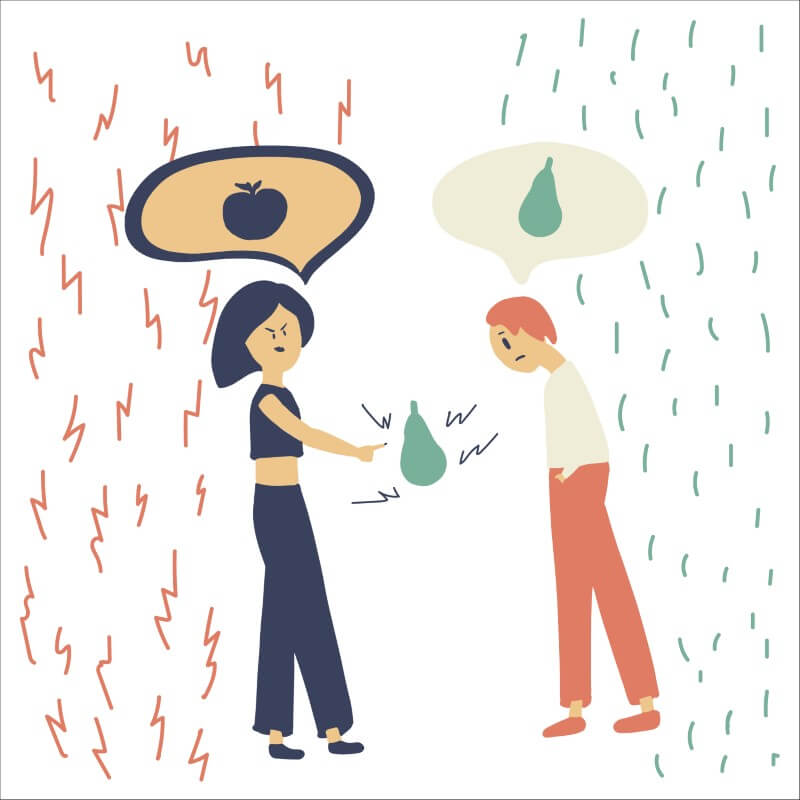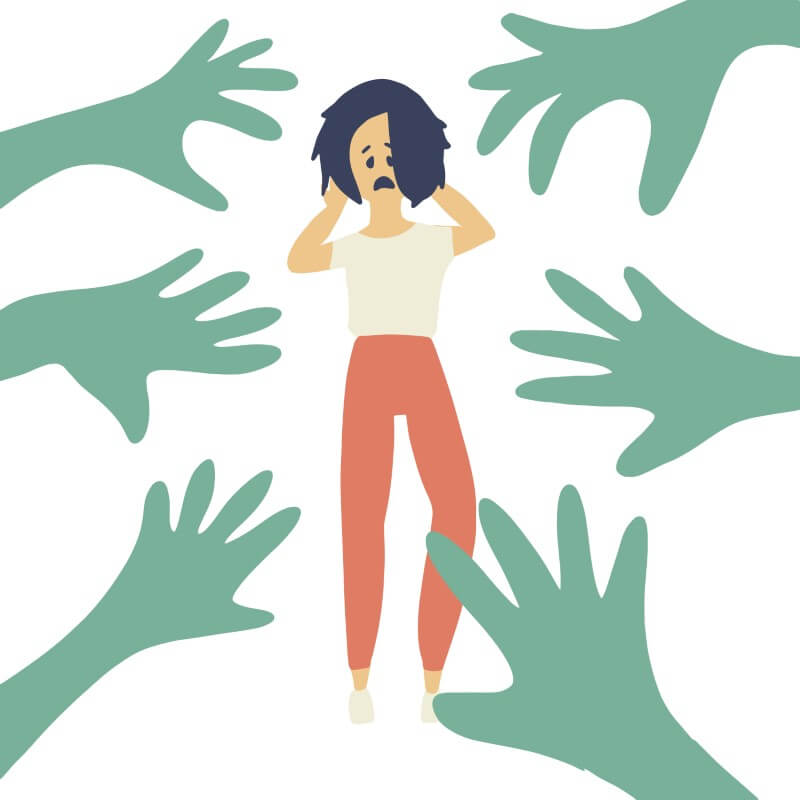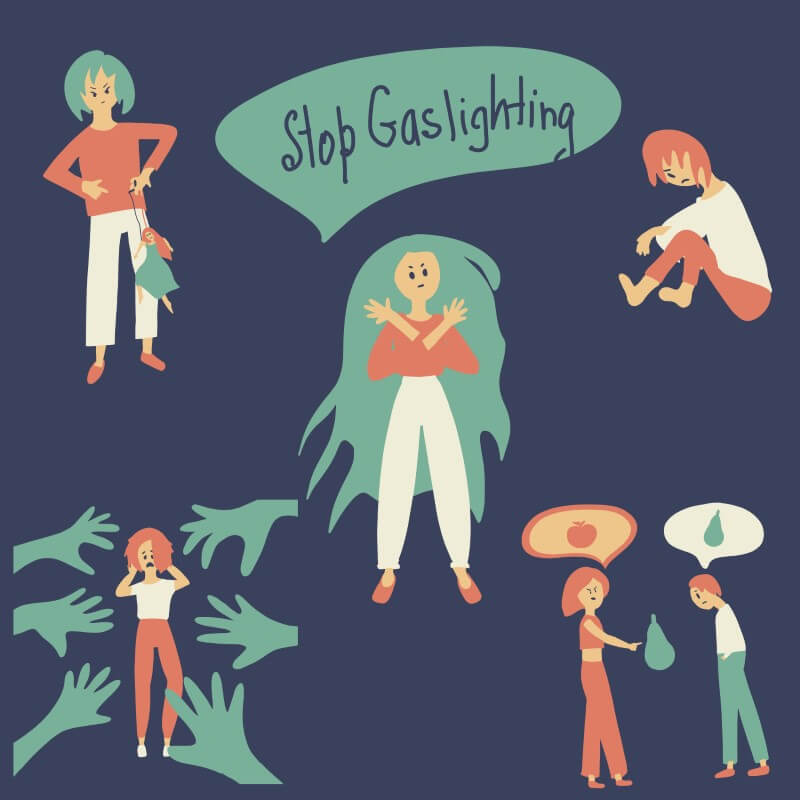If you’ve ever been in a relationship, whether it is a serious relationship or you are casually dating online, you may have heard the term “gaslighting” before, especially when referring to toxic relationships. You might have even experienced gaslighting yourself.
Read on to find out what is gaslighting in a relationship, and learn how to stop gaslighting in a relationship.

What is gaslighting in a relationship?
Gaslighting is a form of psychological manipulation or psychological and emotional abuse where a person continuously undermines and questions another’s reality, eventually causing the other to undermine and second-guess their memories, perception of reality, and self-worth. Gaslighting can happen in all types of relationships, whether they are romantic, familial, friendly, or work relationships.
Where does the term gaslighting come from?
The term gaslighting comes from the British play Gas Light, which was later adapted into a film titled Gaslight, in which the husband manipulates his wife and convinces her that she has gone insane. He does so partly by slowly dimming the gas lights in their home and pretending they weren’t dimmed when she comments on the change. Eventually, he convinces her she is hallucinating.
What is an example of gaslighting?
You may be wondering what is an example of gaslighting. These examples can help you understand what gaslighting behaviour might look like.
What is an example of gaslighting in a romantic relationship
When gaslighting occurs in a romantic relationship, it may be a sign that the relationship is toxic. Gaslighting in a relationship can look like one partner making the other feel needy or too sensitive. It can also look like one partner continuously denying they did or said something hurtful. These can manifest by
- isolating you from others
- withholding information from you
- invalidating your feelings
What is an example of gaslighting at work
When gaslighting occurs are work, it can appear as it does in any other relationship—when a coworker continuously claims you have misinterpreted their behaviour or words. It can also be more specific to an office setting; for example, if a coworker lies about never having been sent your project or presentation or moves things on your desk without asking. You may also be gaslighted by your supervisor if they make promises they don’t keep.
What is an example of gaslighting in the family?
If your family member denies something you know to be true or says they have done something hurtful to you because they love you, it can be a sign of gaslighting.
In childhood, gaslighting can look like unpredictable parenting, where parents may try to appear perfect to the outside world, invalidate your thoughts and feelings, or lie to you.

Reasons people gaslight others
Gaslighting others can make some people feel more in control. While sometimes gaslighting is intentional, it is often an unconscious habit that is adopted from others and develops slowly.
People who gaslight may feel insecure and anxious, and gaslighting offers a way to boost self-esteem by having power over someone else. leading them to need to feel right and gain control. It can be seen as a survival strategy.
How gaslighting can affect you
When someone continuously gaslights you, they cause you to constantly undermine yourself, which can feel confusing and disorienting. Sometimes, being gaslighted by someone else causes you to begin to gaslight yourself by questioning your memories and reality.
If you’ve often experienced gaslighting in a relationship, you may begin over-apologizing, worrying about others’ perceptions of you, having difficulty making decisions, or believing you are too sensitive and discrediting your feelings. You might begin to think of others as more important than yourself and justify their behaviour even if it’s faulty.
Ultimately, being gaslighted can reduce your confidence and self-trust, and may cause you to feel like you’ve lost grasp of reality and identity.
How to stop gaslighting in a relationship (if you are being gaslighted)
If you are a victim of gaslighting, you can heal by learning to trust yourself again. A good way to do so is by seeking professional help. Here are some techniques that can help you:
Educate yourself
You can read about the signs of gaslighting to help you get in touch with your perception. Then, you can determine what is true for you and hold firm to that. You can search for and practice self-soothing exercises and coping skills to restore your sense of self.
Stick to the facts
If you begin to experience self-doubt, write down facts and events you know to be true. You can return to what you’ve written down if you begin to doubt yourself again. Recognising that there’s more than one way to see things and that your perspective is valid can help.
In conversation, you can pause and recall your list of facts, and then try to state your perspective out loud in a calm, firm, and confident way.
Communicate
If it feels safe, you can start a conversation with your partner about the subject. Talk about how the way they express themselves affects you, and how to communicate with more respect and kindness. You can discuss and set mutual boundaries around gaslighting behaviours and conversations and plan what you can do if you notice gaslighting is happening.
Set boundaries
Sometimes, distancing yourself from the person who gaslights you can help. If there is a personal attack or degrading comment, state that that is not okay and if it happens again, you will end the conversation. If it happens again, communicate that you’re done talking and walk away. Sometimes it’s best to simply refuse to engage.
Build a support system
If you don’t feel safe, seek help and get support from others. It can help to reach out to a psychotherapist or a trusted other who can help you to gain perspective, review certain incidents and your experience of them, and understand your truth.
If you are experiencing abuse or violence, it is especially important to seek help.

How to stop gaslighting in a relationship (if you’re doing it)
Gaslighting is a spectrum, and these behaviours can range from power struggles in relationships to severe abuse.
If you find yourself invalidating or dismissing others’ feelings and perspectives, accusing and criticizing, or using other controlling behaviours, consider seeing a therapist for individual support and guidance.
Communicate
Others might appreciate it if you start a conversation about your struggles with them. If conversations often turn sour, you can try to improve your communication skills by listening to the other, expressing empathy, validating another perspective, and using “I feel” statements rather than “You” statements.
Communicating with mental health professionals can help, too. It can be challenging to change ingrained behaviours, and it often requires addressing the form of emotional abuse or other traumatic experiences that have led you to develop these controlling behaviours.
Identify your behaviours
If you find that you are the gaslighter or abuser in your relationships, try to identify the gaslighting and controlling behaviours you use and be aware of when and how you are gaslighting.
In conversation, identify cognitive distortions like all or nothing thinking. Recognize that there is a grey area to nearly everything. Practice focusing on feelings rather than who is right or wrong.
Consider the effects gaslighting has on your present and future relationships. Try to take responsibility for your behaviour and accept the consequences of your actions.
Find the root cause
To get to the root of why you are gaslighting, explore the events, trauma, and factors that led to your development of gaslighting behaviours with the help of a professional. Consider the anxieties and fears that lead to low self-esteem and a need to control others.
Find healthy coping mechanisms
An important step is learning how to regulate your nervous system and self-soothe when you are anxious. Practice accepting and tracking your feelings to identify triggers that lead you to gaslight.

What is gaslighting in a relationship and how to stop gaslighting in a relationship: FAQs
How to stop gaslighting in a relationship before it happens?
The first step to protecting yourself from gaslighting is educating yourself about the warning signs of gaslighting. By learning to identify the signs of gaslighting and catching the red flags, you can learn how to respond before the situation escalates.
How can you tell if you’re being gaslighted in a relationship?
Some behaviours that can signify gaslighting in a relationship are
– lying
– making you question your perception, thoughts, and memories
– invalidating your feelings or concerns
– deflecting blame or blame-shifting
– denying wrongdoing and avoiding responsibility for choices
– isolating you from others
What are some gaslighting phrases?
While gaslighting can manifest in many ways, these are a few common phrases that may indicate gaslighting:
– “You’re overreacting”
– “Why would you think that?”
– “That never happened”
– “You’re just insecure/jealous”
– “I criticize you because I care”
What is gaslighting in a relationship and how to stop it: our final thoughts
Gaslighting in a relationship can cause harm to both the person who gaslights and the person being gaslighted. It can be important to address these challenges if they come up so that the relationship can heal. Keep in mind that a healthy way to address gaslighting is seeking professional help.

- #1 trusted dating app in the UK
- For serious, long-term relationships
- Free registration

- Perfect for: People looking to flirt and starts things off in a fun way
- Find someone in your neighbourhood
- Chat with like-minded singles straight away

- The place to find like-minded people who are looking for meaningful relationships
- Great search function
- Immediate support from professional team

- Ignite romance right in your vicinity
- Enjoy exact matching thanks to accurate filters;
- And explore many more benefits that will help you find love!

- Experienced singles looking for good relationships
- Excellent atmosphere to get closer easily
- Online chatting with attractive people

- Exclusive platform for fun-loving mature women in the UK.
- User-friendly interface tailored for easy and enjoyable navigation.
- Active community with high-quality and verified profiles.
- Secure communication features for safe and private chats.
- Dynamic matchmaking to ensure compatible and exciting matches.

- Localized Connections: connect with singles in the UK
- Tailored Matching Algorithm: increasing the likelihood of meaningful connections
- User-Friendly Interface: making the process of finding matches effortless

- Easy and convenient interface
- Perfect for casual dating & hookups
- Plenty of members for you to have fun with

- Over 13 million active users on the site
- Intelligent matchmaking based on background and interests
- 85% of members have a professional background

- Large database of Asian and European singles in the UK
- Full control of your profile to set your desired privacy settings
- Attend virtual events to meet even more members

- Free, fast and easy registration
- Real girls from 180 countries
- Highly engaged and active community

- Meet attractive Asian, European, & Latino singles
- Quick and free signup
- Casual or serious online dating